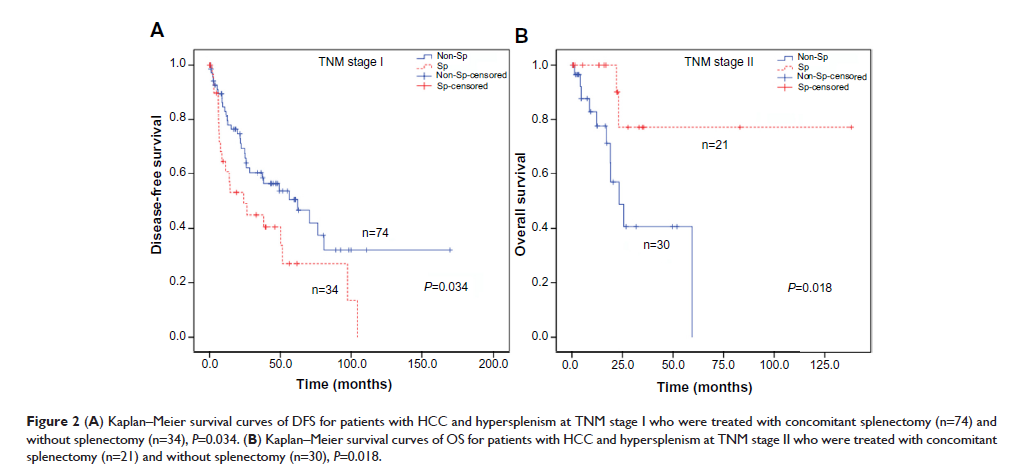108605
论文已发表
注册即可获取德孚的最新动态
IF 收录期刊
- 3.4 Breast Cancer (Dove Med Press)
- 3.2 Clin Epidemiol
- 2.6 Cancer Manag Res
- 2.9 Infect Drug Resist
- 3.7 Clin Interv Aging
- 5.1 Drug Des Dev Ther
- 3.1 Int J Chronic Obstr
- 6.6 Int J Nanomed
- 2.6 Int J Women's Health
- 2.9 Neuropsych Dis Treat
- 2.8 OncoTargets Ther
- 2.0 Patient Prefer Adher
- 2.2 Ther Clin Risk Manag
- 2.5 J Pain Res
- 3.0 Diabet Metab Synd Ob
- 3.2 Psychol Res Behav Ma
- 3.4 Nat Sci Sleep
- 1.8 Pharmgenomics Pers Med
- 2.0 Risk Manag Healthc Policy
- 4.1 J Inflamm Res
- 2.0 Int J Gen Med
- 3.4 J Hepatocell Carcinoma
- 3.0 J Asthma Allergy
- 2.2 Clin Cosmet Investig Dermatol
- 2.4 J Multidiscip Healthc

肝细胞癌和脾功能亢进患者的术后预后:来自中华人民共和国的一个单中心经验
Authors Li C, Zhao H, Zhao J, Li Z, Huang Z, Zhang Y, Bi X, Cai J
Published Date June 2014 Volume 2014:7 Pages 957—964
DOI http://dx.doi.org/10.2147/OTT.S64921
Received 26 March 2014, Accepted 17 April 2014, Published 9 June 2014
Purpose: As prognosis of patients with hepatocellular carcinoma (HCC) and hypersplenism is rarely reported, this study examined prognostic factors for patients who underwent surgery for this condition.
Patients and methods: This study retrospectively analyzed prognostic factors in 181 consecutive HCC patients using univariate and multivariate analyses, as well as subgroup analyses for disease-free survival (DFS) and overall survival (OS) of two groups: one group who received splenectomies (Sp) and one group who did not (non-Sp).
Results: 1, 3, and 5 year OS rates were 88.4%, 67.1%, and 52.8%, respectively; corresponding DFS rates were 67.0%, 43.8%, and 31.6%, respectively. Age ≥55 years old, cigarette smoking, tumor size ≥5 cm, microvascular invasion, and Child-Pugh grade B (versus A) correlated significantly with OS (P <0.05). Interestingly, in patients with tumor lymph node metastasis (TNM) stage I disease, DFS of the Sp-group (median DFS, 24.1 months; n=34) was significantly lower than that of the non-Sp group (median DFS, 62.1 months; n=74), P =0.034; whereas at TNM stage II, OS of the Sp-group (median OS, 79.1 months; n=21) was significantly better than that of the non-Sp group (median OS, 23.3 months; n=30), P =0.018.
Conclusion: Hepatectomy without concomitant splenectomy can contribute to improved DFS of TNM stage I HCC patients with hypersplenism, whereas simultaneous hepatectomy and splenectomy can prolong OS for patients at TNM stage II.
Keywords: hepatectomy, splenectomy, overall survival, disease-free survival
